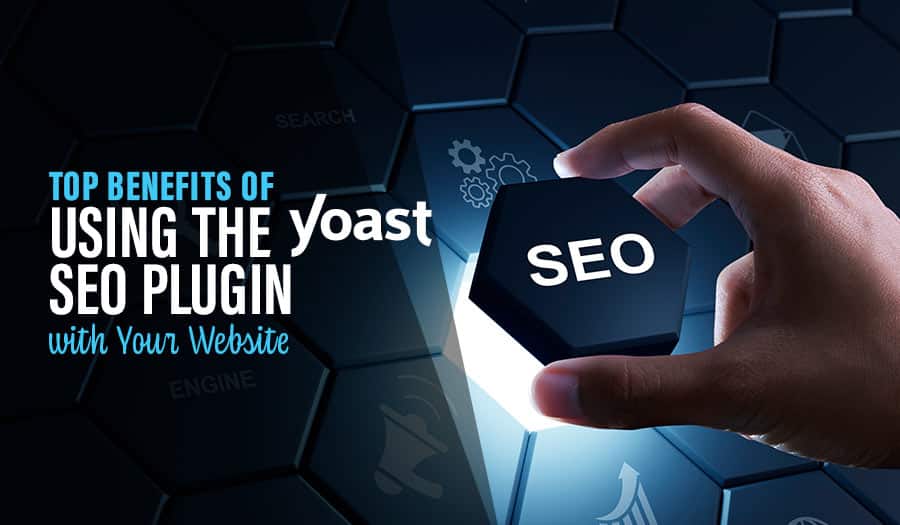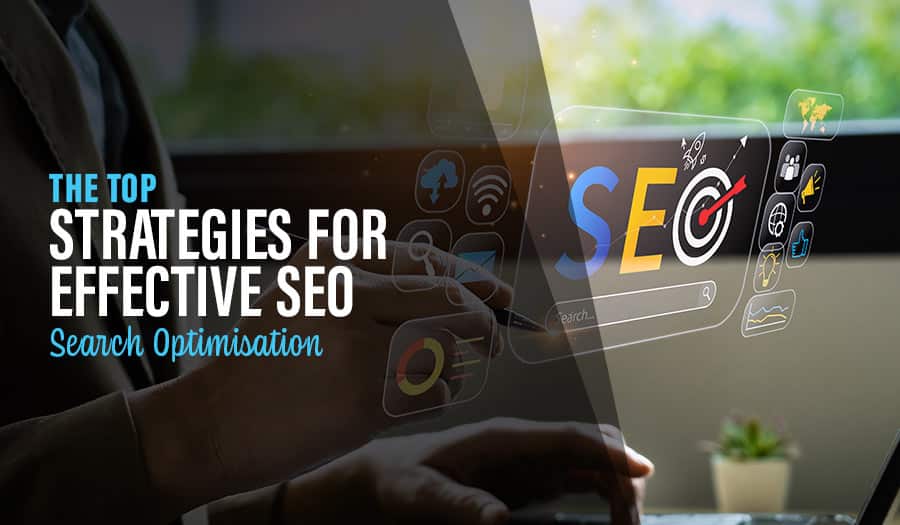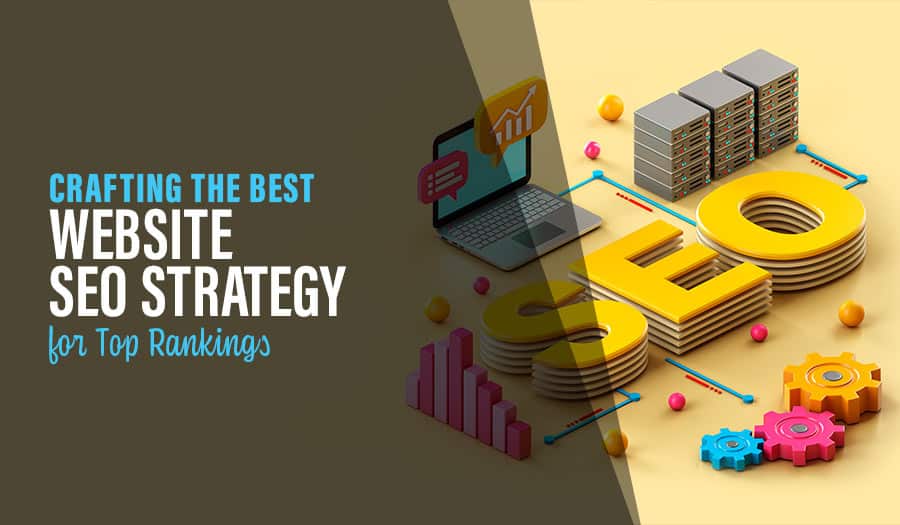It’s common for small business owners to ignore SEO because they never think their website will get a top spot in Google’s search engine results pages. Although this thinking is typical, it’s totally and completely wrong. It’s even more critical for small businesses to practice SEO since it’s their best chance of generating leads online. Let’s explore why Small Business SEO Matters.
Why Small Business SEO Matters
1. Organic Search vs Paid Search
If you type something into Google, you’ll see a ton of links on the next page. Most of these are organic links, but the first few are paid ads.
Organic links represent high-ranking websites because they have great domain authority. These are the businesses that invest in SEO. On the flip side, some companies buy ads on Google for an extra bump in site traffic.
It’s well-documented that the overwhelming majority of clicks come from organic links. This is why SEO is so important. Paid ads might marginally increase your site traffic, but to generate leads, you need to improve your site ranking through SEO efforts.
Benefits of Organic Search
Organic search is an effective way to make your website more visible and get more visits. Due to its range of benefits, it’s quickly becoming a preferred marketing technique for online businesses:
- Increased Traffic – SEO brings the most targeted visitors who are already interested in the services you offer;
- Cost-Efficiency – SEO is much more cost-effective than paid advertising;
- Long-Term Benefits – Unlike other marketing channels, the effects of SEO are long-lasting and have a compounding effect over time;
- Increased Brand Awareness – As a result of higher rankings on search engines, your brand’s visibility increases. This helps spread your brand’s awareness and build trust among potential customers.
- Better User Experience – SEO leads to increased website usability, which makes it easier for users to find what they need on your site. This helps improve user experience, another key element in successful online businesses.
- Higher Conversion Rates – Websites that have optimized their content for search engine visibility generally tend to convert better than those that have not. This is because users who find what they need quickly and easily are likely to make a purchase or take the desired action.
- Better Return on Investment – SEO provides one of the best returns on investment when it comes to marketing, and can often yield returns of up to five times the original investment.
Benefits of Paid PPC Search
- Paid search can be highly targeted – allowing you to quickly reach the right type of customer. You can also track your return on investment and adjust your campaigns accordingly. This helps ensure that you get the most out of your marketing budget.
- Overall Increased Reach – By increasing website visibility through SEO, PPC and other digital marketing channels, businesses are able to reach a larger number of potential customers. This can then result in increased sales and leads.
- Increased Brand Awareness – SEO can help increase your brand’s visibility, which is particularly useful for small businesses or those trying to break into new markets. Being more visible online helps build trust with potential customers, as well as allowing them to find you quickly and easily.
- Cost Control – With SEO, businesses can control the costs associated with their digital marketing campaigns. This gives them more flexibility when it comes to budgeting and allocate resources accordingly. This also allows them to compare different options and assess which one is best suited for their goals.
- Measurable Results – SEO provides measurable results that can be tracked and analysed. This allows companies to measure the effectiveness of their campaigns and make adjustments as needed. Ultimately, this helps them optimize their marketing efforts for maximum return on investment.
- Increased Traffic – SEO can drive more traffic to your website and help you get higher search engine rankings. This increased visibility will lead to more customers discovering your content and products. Ultimately, this will lead to increased sales and more profits for your business.
- Better User Experience – SEO can improve the user experience on your website by making it easier for users to find what they’re looking for. This enhanced user experience can help increase customer conversions, leading to higher sales and better ROI.
2. Get a higher-ranking site
Through an SEO campaign, businesses can get the site ranking they need to attract users from Google. This is where things get more complex, as many SEO strategies and tactics exist.
A recent Small Business Trends article talks about a few of those strategies. It mentions that you shouldn’t have multiple pages compete for the same keywords, since this will harm your SEO:
“Don’t let the scary name spook you; keyword cannibalisation isn’t that scary at all, but it can have disastrous results. Keyword cannibalisation occurs when two or more pages on your website are competing for the same keyword(s). This can occur when people don’t realise that they have duplicate content or duplicate titles, or even when inexperienced SEO “specialists” optimise multiple pages for the same keyword on purpose, thinking it will make the website as a whole more authoritative, but that is not the case.”
This is a common SEO mistake that businesses make. It also demonstrates the need for an experienced professional to run a campaign.
Top SEO Strategies to Rank Higher for Your Keywords
- Research the best keywords and phrases: The first step to success is understanding which terms will generate the most qualified visitors to your site. Look for words and phrases that are relevant, have high search volume, and low competition.
- Optimise keyword usage throughout your website: Make sure you use your chosen keywords in title tags, meta descriptions, images and other content throughout your website.
- Create keyword-rich content: Creating valuable content that is rich in keywords will help attract more visitors to your website. It should be relevant to the words you’ve chosen for your SEO campaign, but also useful and informative for the user.
- Build backlinks: Link building helps to build authority and credibility for your website. Focus on getting quality links from high-authority sources, such as directories, blogs, forums, industry magazines and social media sites.
- Monitor your progress: Track your website’s performance by using analytics tools like Google Analytics or Webmaster Tools. Use the data to monitor and fine-tune your SEO strategy, as well as to identify areas for improvement.
- Stay up-to-date: Staying informed on the latest trends in search engine optimization is key to staying ahead of your competition. Read industry blogs, attend seminars and take advantage of webinars offered by SEO experts.
3. Give your content more visibility
Another reason to invest in SEO is to get more users to see and read your content. This is critical since content can help you generate and convert leads online.
This recent Small Business Trends article explains how to enhance your SEO by allowing comments on your content:
“I always recommend allowing comments, because you want to stay connected to your readers. You also get an SEO benefit from the comment content being added to the page, because search engines like it when pages are updated and added to often. If you choose to allow comments, make sure you moderate often and have a comment spam solution in place.”
This is a simple yet effective way to both engage your users and enhance your SEO simultaneously. For more user engagement, share your content on social media and try to start a discussion.
Tips for sharing content via Social Media
- Share your content during peak times of the day when people are more likely to be active on social media. •
- Engage with other users that comment, like, or share your posts.
- Respond to questions and comments in a timely manner.
- When writing content for social media, it’s important to use hashtags related to your industry in order for followers and potential customers to easily find your posts.
- Additionally, you should post content regularly, as this helps keep your followers engaged and encourages more people to follow you.
- When crafting content for social media, be sure to write with more detail
4. Generate more leads
With a high site ranking from a good SEO campaign, you can generate leads without ever having to buy ads. All you have to do is make a few landing pages for users coming from different platforms — social media, Google, your blog, etc. — and wait for them to sign up.
Without SEO, lead generation is almost impossible. You’d have to create amazing content and run an impeccable social media marketing campaign that targets the right users. This strategy requires way more luck than a typical SEO campaign.
Search engine optimisation can help small businesses generate leads, give their content more visibility, and move up in Google’s rankings. To talk more about small business SEO, or anything else, contact us today.
Speak to Sydney’s leading Web Agency and take your business to the next level with a Pixel Fish Website.
Further Information:
10 Tips for Creating a Better Contact Form to Improve Conversion
Tips For Creating A Website Sitemap For Your Business
10 Common Misconceptions About WordPress
Creating Website Content that Appeals to Both Scanners and Readers
Should I have Staff Photos on My Business Website?
How to Conduct an Effective Competitors Website Review
9 Ways to Optimise your Website for Voice Search
10 Ways To Improve Your Website Footer
8 Vital Signs That Your Business Website Needs Updating
8 Successful WordPress Website Design Best Practices



